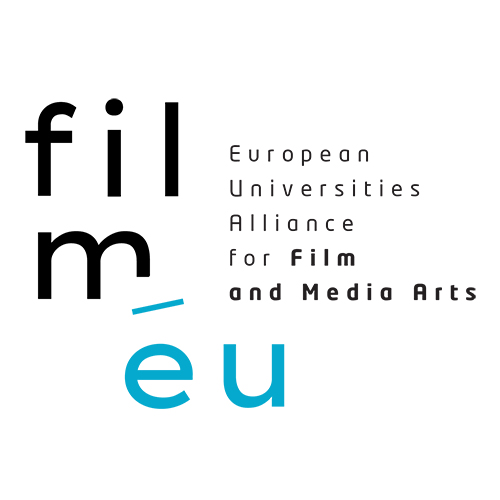
FilmEU announces innovative research projects in film and media arts
Five pilot research projects, investigating everything from artificial intelligence to zoetropes, have been launched by FilmEU, the European Universities Alliance for film and media arts. With funding from the EU’s Horizon 2020 programme (FilmEU_RIT), five multinational, multidisciplinary teams of researchers will collaborate for the next 20 months, identifying new ways of working together and demonstrating the importance of artistic research and of experimental and practice-led approaches. These pilot projects will provide a foundation for interdisciplinary research clusters spanning all of the FilmEU institutions, further positioning FilmEU as a critical cultural intermediary for Europe’s creative industries.
Reflecting the collective strength of applied and experimental research across FilmEU, a number of projects engage with technologies past, present, and future. “Immersive Memories” will carry out artistic experimentation with hybrid animation film artefacts, combining the analogue and the digital (with VR, film and photo formats from across the decades) and revisiting early devices such as the Zoetrope, the 19th century image projector. It will culminate in physical and virtual exhibitions, accompanied by documentation of the experimental processes deployed. “Creative Collaboration with AI” will see the researchers engage with natural language processing in order to produce a ‘co-authored’ mini-series, further developed through live action role play workshops. In doing so, the team will also consider the material and political implications of the use of AI in artistic production.
FilmEU’s research will make it possible for other researchers, in film and media but also across other fields, to access crucial resources. “TEASA: The European Archive of Short Animation” is an investigation of a future relational database and digital archive of European short animated film. Through identifying current resources and collections, and building as proof of concept a database of a sample of material, the team will identify the next steps for a project that has the potential to support artistic, historical and contemporary research across Europe and beyond. “Decolonising the Panorama of Congo” is a virtual heritage artistic research project revisiting a version of immersive media that prevailed a century ago. The Panorama of Congo, last displayed in Brussels in 1935, will be photographed, re-curated in a modern VR environment, and explored in light of critical and postcolonial insights, in cooperation with the War Heritage Institute and the Africa Museum, and with Congolese artists and scholars.
Each of the FilmEU institutions have long explored film and media arts from a diverse range of perspectives, across the arts and sciences. “Artistic research and cognitive film studies” will promote a transdisciplinary understanding of cinema, exploring artistic creative practices (e.g. sound design and cinematography) in the context of the fast-developing field of cognitive film studies, which explores the implications of embodied cognition for our understanding of the arts.
In announcing these five projects, the FilmEU Management Board expressed its welcome for the broad range of research proposals submitted, and recognised the strength of other proposals on topics including hypermodern cinema, VR representations of the natural environment, and wearable technology. These ideas will be taken forward through further exploratory discussions between the researchers.








